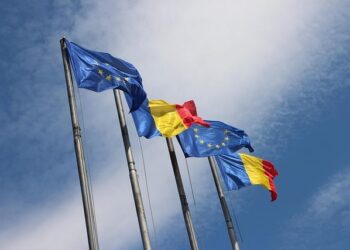As the new academic year approaches in Serbia, universities face mounting challenges as a significant number of students remain absent amid an ongoing boycott. Institutions across the country are striving to address the underlying grievances and encourage a return to classes, aiming to restore normalcy on campuses. This developing situation highlights broader tensions within Serbia’s higher education system and poses critical questions about student engagement and institutional responsiveness.
Universities Tackle Student Boycott Impacting Academic Calendar
Universities across Serbia are grappling with the repercussions of a widespread student boycott that started earlier this year, disrupting academic schedules and threatening timely graduations. Administrations have been prioritizing dialogue, aiming to address student grievances concerning educational reforms and campus conditions. Efforts to mediate include establishing new committees involving student representatives and faculty to foster transparent communication and negotiate feasible solutions.
Key strategies proposed by universities include:
- Rescheduling missed classes and examinations using compressed timetables.
- Expanding online course offerings to accommodate disrupted learning.
- Providing additional academic support and counseling services.
- Implementing flexible attendance policies to encourage re-engagement.
| University | Action Plan | Expected Outcome |
|---|---|---|
| University of Belgrade | Hybrid classes + extended semester | Minimal delay in graduation |
| University of Novi Sad | Student-faculty forums + counseling | Improved student relations |
| University of NiŇ° | Online exams + makeup sessions | Academic calendar stabilization |
Strategies and Initiatives to Reengage Disengaged Students
Universities across Serbia are rolling out a set of comprehensive measures aimed at rekindling student interest and participation following widespread disengagement. Key among these initiatives is the introduction of flexible learning options, including hybrid courses that blend in-person and online sessions to accommodate diverse student needs. Additionally, institutions are expanding mental health support services, recognizing that emotional well-being plays a critical role in academic commitment. Scholarship programs and targeted financial aid packages are also being revised to alleviate economic pressures that have contributed to the boycott.
Several extracurricular and community-building activities are being launched to foster a stronger sense of belonging and motivation. These include
- peer mentorship networks connecting new and returning students
- interactive workshops focused on career readiness and skill development
- collaborations with local industry leaders offering internships and real-world project experience
Below is a summary of the main strategies currently being deployed:
| Strategy | Objective | Status |
|---|---|---|
| Flexible Course Formats | Adapt to varied student schedules and preferences | In Implementation |
| Financial Assistance Enhancements | Reduce economic barriers | Planned for Upcoming Semester |
| Mental Health Services Expansion | Support emotional and psychological well-being | Ongoing |
| Extracurricular Engagement | Build community and professional skills | Launched |
Experts Recommend Collaborative Approaches to Restore Trust and Attendance
Leading voices in Serbia’s higher education sector emphasize that rebuilding the fractured relationship between universities and students requires inclusive dialogue and transparent communication. Experts advocate for collaborative frameworks where student representatives actively participate in decision-making processes, ensuring that educational policies reflect their concerns and aspirations. This approach, they argue, can help heal the growing mistrust that triggered widespread boycotts and absenteeism during the recent academic year.
Practical measures suggested include the establishment of joint university-student committees, revamped grievance mechanisms, and tailored outreach programs to promote engagement. These initiatives focus not only on academic issues but also on broader campus life and welfare. Below is a summary of expert recommendations designed to increase attendance and restore confidence within Serbia’s universities:
- Regular Consultations: Scheduled forums for open dialogue between students, faculty, and administration.
- Transparent Policy-Making: Clear communication about changes affecting curriculum, grading, and campus safety.
- Support Services: Expanded counseling and academic support tailored to students’ needs.
- Incentives for Attendance: Academic credits or benefits linked to active participation.
| Approach | Expected Outcome |
|---|---|
| Joint Committees | Enhanced mutual trust and accountability |
| Transparent Communication | Reduced misinformation and increased student buy-in |
| Increased Support Services | Improved student well-being and retention |
| Incentives for Attendance | Higher attendance rates and active participation |
Let me know if you’d like me to help with anything else related to this section!
Wrapping Up
As Serbia’s universities prepare to welcome students back amid ongoing tensions, both educational institutions and authorities face the challenge of addressing the root causes behind the student boycott. The coming weeks will be critical in determining whether efforts to engage and resolve grievances can restore stability to the academic year. Observers continue to watch closely as the situation unfolds, recognizing that the outcome may have lasting implications for Serbia’s higher education landscape.
















